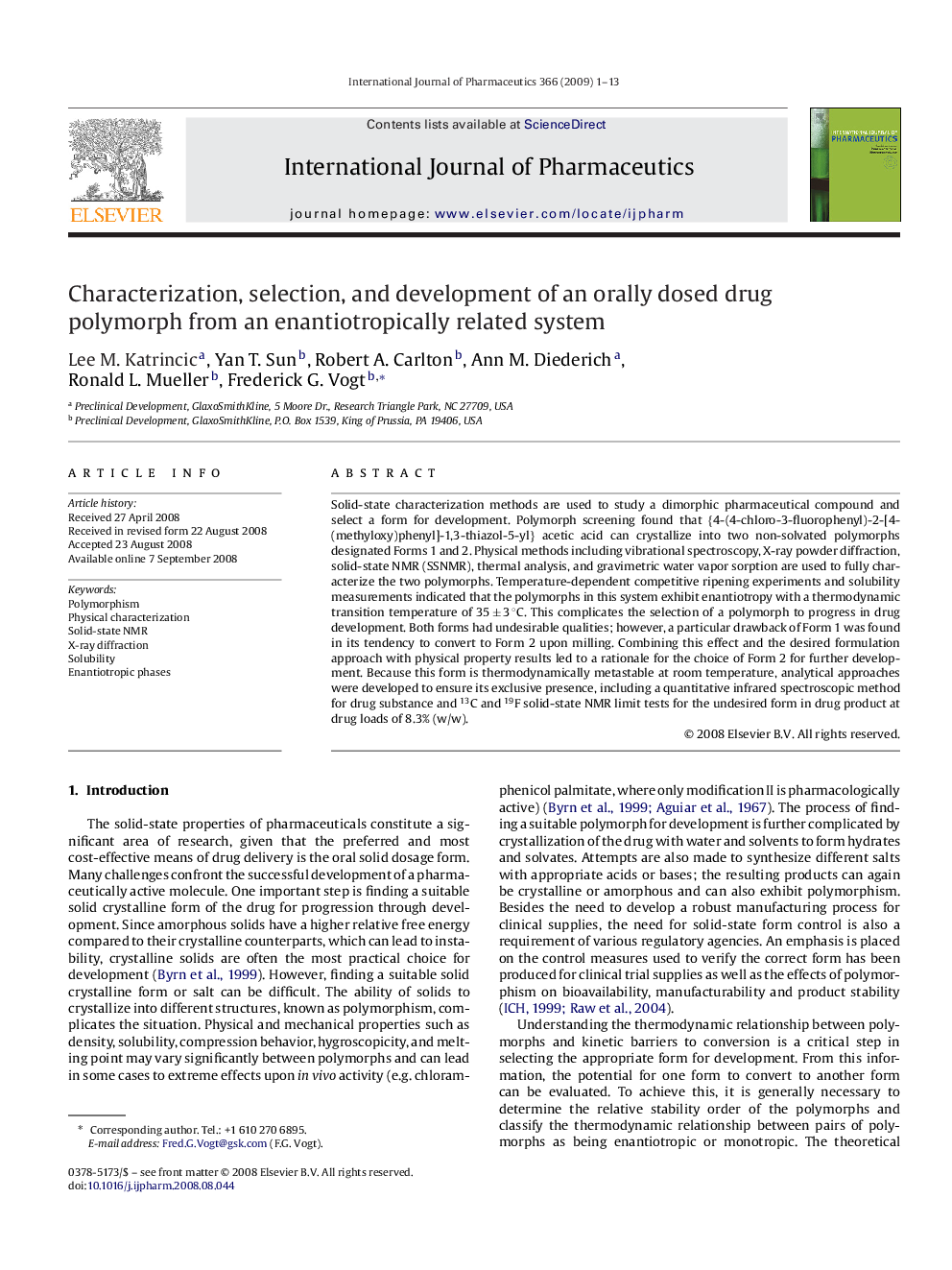| Article ID | Journal | Published Year | Pages | File Type |
|---|---|---|---|---|
| 2505159 | International Journal of Pharmaceutics | 2009 | 13 Pages |
Solid-state characterization methods are used to study a dimorphic pharmaceutical compound and select a form for development. Polymorph screening found that {4-(4-chloro-3-fluorophenyl)-2-[4-(methyloxy)phenyl]-1,3-thiazol-5-yl} acetic acid can crystallize into two non-solvated polymorphs designated Forms 1 and 2. Physical methods including vibrational spectroscopy, X-ray powder diffraction, solid-state NMR (SSNMR), thermal analysis, and gravimetric water vapor sorption are used to fully characterize the two polymorphs. Temperature-dependent competitive ripening experiments and solubility measurements indicated that the polymorphs in this system exhibit enantiotropy with a thermodynamic transition temperature of 35 ± 3 °C. This complicates the selection of a polymorph to progress in drug development. Both forms had undesirable qualities; however, a particular drawback of Form 1 was found in its tendency to convert to Form 2 upon milling. Combining this effect and the desired formulation approach with physical property results led to a rationale for the choice of Form 2 for further development. Because this form is thermodynamically metastable at room temperature, analytical approaches were developed to ensure its exclusive presence, including a quantitative infrared spectroscopic method for drug substance and 13C and 19F solid-state NMR limit tests for the undesired form in drug product at drug loads of 8.3% (w/w).
